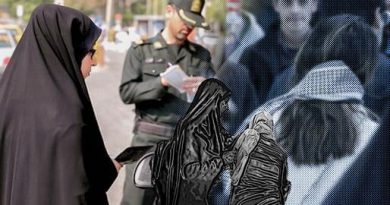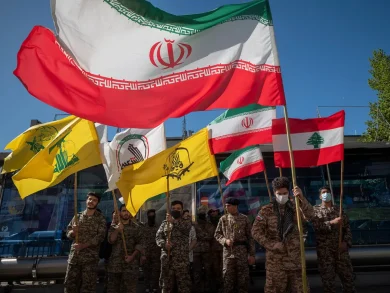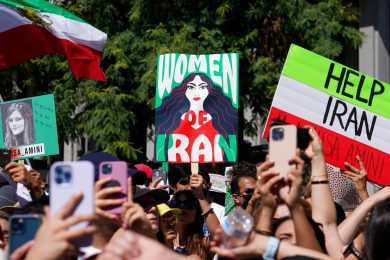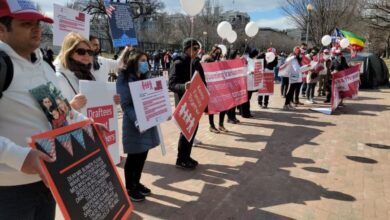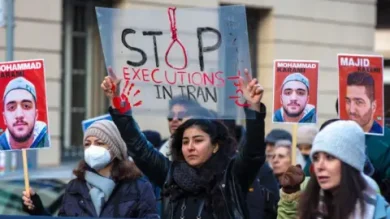Iranian activists have long been at the forefront of efforts to promote human rights, democracy, and equality in a country dominated by authoritarian rule. Despite facing brutal repression, censorship, and imprisonment, these courageous individuals continue to demand change. However, their struggle cannot be fought alone. The international community has a crucial role to play in amplifying their voices, pressuring the regime, and providing practical support. This analysis explores the challenges faced by Iranian activists and outlines strategies for how the global community can effectively stand in solidarity with them.
The Struggles of Iranian Activists
Iranian activists confront a regime that employs every tool of oppression to suppress dissent. The Islamic Revolutionary Guard Corps (IRGC) and other state agencies enforce policies that stifle freedom of speech, assembly, and association.
1. Repression of Protests
• Protests in Iran, often sparked by economic hardships or social grievances, are met with violent crackdowns. In 2019, for example, over 1,500 protesters were killed in response to demonstrations against fuel price hikes.
• Recent protests following the death of Mahsa Amini in 2022 highlighted the regime’s willingness to use extreme violence to silence dissent.
2. Arbitrary Arrests and Torture
• Activists, journalists, and human rights defenders are frequently detained without due process, subjected to torture, and held in inhumane conditions.
• Prominent figures such as Narges Mohammadi and Nasrin Sotoudeh have faced lengthy prison sentences for their advocacy.
3. Censorship and Internet Shutdowns
• The Iranian government heavily censors the internet, blocks social media platforms, and imposes nationwide blackouts during protests to disrupt communication and conceal abuses.
4. Gender-Based Oppression
• Women’s rights activists face unique challenges, including the enforcement of mandatory hijab laws and systemic discrimination. Movements such as “Women, Life, Freedom” have become symbols of resistance against these injustices.
Why Global Solidarity Matters
Global solidarity can amplify the efforts of Iranian activists and create the pressure needed to hold the regime accountable. International support serves several critical purposes:
1. Raising Awareness
• Exposing human rights abuses in Iran ensures that the regime cannot act with impunity.
• Global campaigns highlight the bravery of activists and inspire solidarity movements worldwide.
2. Providing Protection
• Diplomatic pressure and advocacy can protect activists from persecution by shining a spotlight on their cases.
• Refugee programs and asylum policies offer safe havens for those at risk.
3. Weakening the Regime’s Legitimacy
• International condemnation delegitimizes the Iranian regime’s actions and strengthens the credibility of domestic opposition movements.
4. Building Momentum for Change
• Solidarity movements can inspire Iranians within the country by showing them they are not alone in their struggle.
Strategies for Global Solidarity
Supporting Iranian activists requires a multi-faceted approach that combines diplomatic, economic, and grassroots efforts. Here are key strategies for fostering effective global solidarity:
1. Amplify Iranian Voices
• Media Coverage: International media must prioritize stories from Iranian activists and human rights defenders. Platforms like BBC Persian and VOA Farsi play crucial roles in countering state propaganda.
• Social Media Advocacy: Social media campaigns, such as #MahsaAmini and #WomenLifeFreedom, have been instrumental in spreading awareness and mobilizing global support.
2. Diplomatic Pressure
• Sanctions on Human Rights Violators: Targeted sanctions against IRGC officials and other entities responsible for repression can limit their resources and signal international disapproval.
• United Nations Action: The UN can play a pivotal role by passing resolutions, appointing special rapporteurs, and facilitating investigations into human rights abuses in Iran.
• Engagement with Allies: Countries must collaborate to adopt coordinated policies that pressure Iran while supporting its civil society.
3. Provide Safe Havens
• Asylum and Refugee Programs: Countries should offer protection to activists fleeing persecution, ensuring their safety and ability to continue their advocacy.
• Scholarships and Fellowships: Educational and professional opportunities for exiled activists help them rebuild their lives and amplify their voices internationally.
4. Support Digital Freedom
• Circumventing Censorship: Providing Iranians with access to VPNs, encrypted communication apps, and other tools can help them bypass government restrictions.
• Training and Resources: NGOs and tech companies can train activists in digital security to protect them from surveillance and cyberattacks.
5. Fund Civil Society
• Direct Funding: Governments and international organizations can fund NGOs, independent media, and grassroots movements working to promote human rights in Iran.
• Capacity Building: Training and capacity-building programs for Iranian activists and organizations strengthen their ability to mobilize and advocate effectively.
6. Highlight Women’s Leadership
• Support Women’s Movements: Women have been at the forefront of resistance in Iran. Supporting their efforts strengthens the broader push for equality and justice.
• International Campaigns: Campaigns that focus on women’s rights in Iran can galvanize global attention and inspire solidarity across borders.
7. Hold the Regime Accountable
• Human Rights Tribunals: Pursue legal action against Iranian officials responsible for crimes against humanity through international courts and tribunals.
• Documentation of Abuses: Supporting efforts to document human rights violations ensures accountability and lays the groundwork for future justice.
Challenges to Global Solidarity
While global solidarity is essential, several challenges complicate its effectiveness:
1. Regime Propaganda
The Iranian government portrays international support for activists as foreign interference, undermining the legitimacy of domestic movements.
2. Sanctions Fallout
Broad sanctions targeting Iran’s economy often harm ordinary citizens more than the regime, creating resentment and complicating efforts to build solidarity.
3. Lack of Global Consensus
Divergent interests among major powers, such as the U.S., EU, Russia, and China, hinder coordinated efforts to pressure Iran.
4. Activist Safety
Publicizing the names and efforts of activists can expose them to greater risks, requiring careful consideration of their safety.
Success Stories of Global Solidarity
1. The Mahsa Amini Movement
The global outcry following Mahsa Amini’s death in 2022 exemplifies the power of solidarity. Protests around the world and online campaigns pressured governments and organizations to take action.
2. Sanctions on Human Rights Violators
Targeted sanctions on IRGC officials and entities involved in repression have limited their ability to operate freely internationally.
3. International Advocacy for Prisoners
Campaigns by organizations like Amnesty International have secured the release of prominent activists and raised awareness of Iran’s human rights abuses.
The Path Forward
To effectively support Iranian activists, the international community must adopt a sustained, multi-dimensional approach:
1. Focus on Targeted Actions: Sanctions and diplomatic efforts must focus on the regime’s leadership and repressive apparatus, minimizing harm to ordinary Iranians.
2. Empower Civil Society: Direct support for grassroots movements and independent organizations strengthens the foundation for change.
3. Build Coalitions: A unified global response amplifies pressure on the regime and demonstrates solidarity with Iranian activists.
4. Maintain Attention: Continued media coverage and advocacy ensure that the plight of Iranian activists remains a global priority.
Conclusion
Iranian activists are leading a courageous fight for freedom and human rights under one of the world’s most oppressive regimes. Global solidarity is not only a moral imperative but a practical necessity to amplify their voices, protect their lives, and support their struggle. By providing diplomatic pressure, digital tools, financial resources, and international advocacy, the global community can stand with Iranian activists in their pursuit of justice, equality, and democracy. Together, we can ensure that their sacrifices are not in vain and that their vision for a freer Iran becomes a reality.
Join Our Newsletter!
Stay informed with the latest updates, news, and ways to take action in the fight for justice and global security. Sign up now to get updates delivered straight to your inbox!

